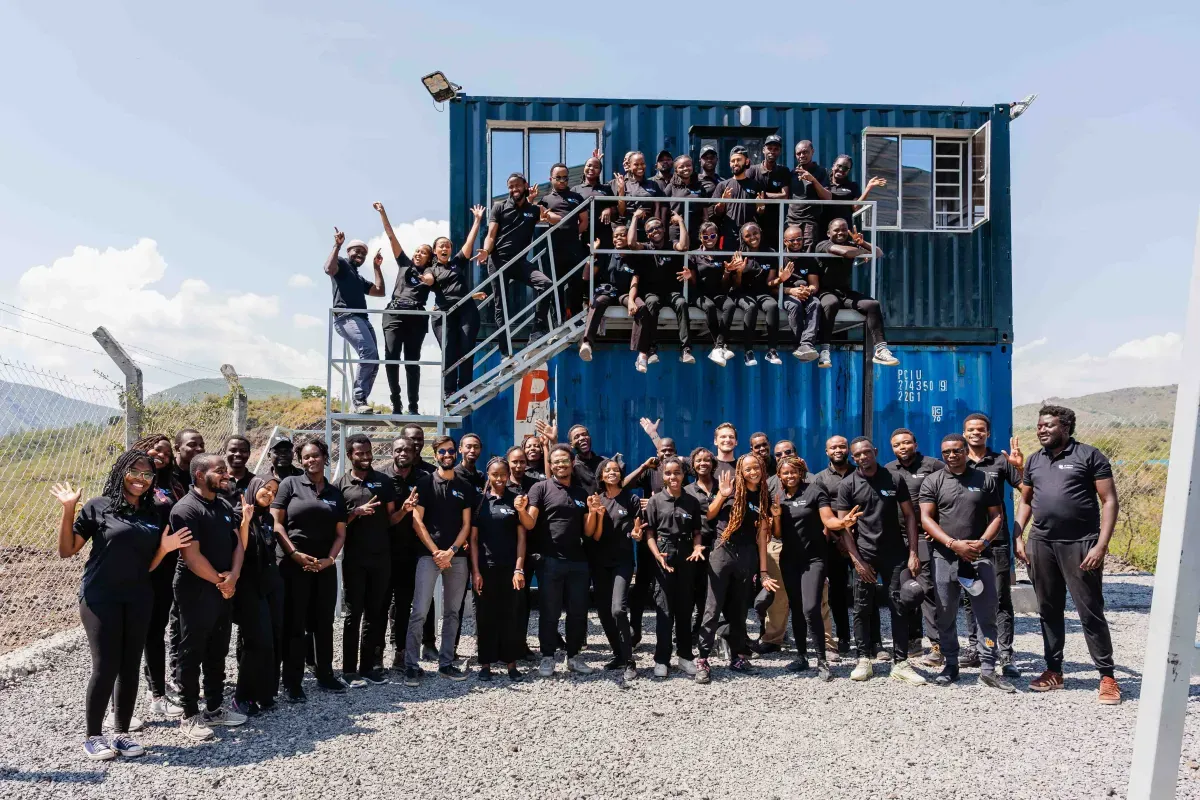Kenyan Startup Octavia Advances Carbon Capture with New Seed Funding
Octavia, a Kenyan-based carbon removal startup, has raised $3.9 million in seed funding to scale its carbon capture technology. The startup, which began capturing carbon earlier this year, is now focused on expanding its operations with additional machines. These new devices will complement its existing two, which together have a current capture capacity of 50 tonnes per year. The startup also announced $1.1 million in advance sales of carbon credits as part of its growth strategy.
The funding round was co-led by Lateral Frontiers and E4E Africa, with additional support from Catalyst Fund, Launch Africa, Fondation Botnar, and Renew Capital.
Innovative Carbon Capture Technology in Action
Martin Freimüller, co-founder and CEO of Octavia, shared that the startup plans to increase its carbon capture capacity to 1,500 tonnes annually by 2025. This expansion will be supported by a new storage site run by their partner, Cella Mineral Storage, which specializes in carbon sequestration.
“We’ve developed the technology, and now we’re scaling up to remove carbon at a larger scale in the field,” Freimüller explained. Alongside his co-founder Duncan Kariuki, a mechanical engineer, Freimüller emphasized that Octavia is ready to push carbon removal out of the lab and into real-world applications.
Turning Captured Carbon into Stone
Octavia captures carbon from the air, liquefies it, and then partners with Cella Mineral Storage to inject it into underground volcanic rock formations. This process turns carbon dioxide into rock, marking a significant step in permanent carbon storage. The startup’s first batch of captured carbon is expected to be injected underground before the end of the year, making it one of the first global projects to achieve this transformation.
Freimüller explained, “Once the liquid carbon dioxide is ready, we hand it over to Cella, who injects it at high pressure into porous volcanic rocks. These rocks contain minerals like calcium and magnesium that react with the CO2 to form stable carbonates, effectively locking away the carbon.”
Kenya’s Unique Geology and Renewable Energy Advantage
One of the primary reasons Octavia chose Kenya for its operations is the country's unique geology, particularly in the East African Rift Valley. The porous volcanic rocks in this region are ideal for carbon storage, offering vast capacity. “Kenya’s Rift Valley provides the perfect environment for our work,” Freimüller said. “It’s estimated that the region could store all of humanity’s cumulative CO2 emissions in its 8,600 cubic kilometers of pore space.”
Additionally, Kenya’s abundance of renewable energy, particularly geothermal power, gives Octavia a competitive edge. Freimüller noted that many other direct air capture (DAC) companies rely on fossil fuels and then purchase renewable energy credits to offset their emissions, a process Octavia avoids by using clean energy directly.
Global Carbon Capture Efforts and Octavia’s Role
Octavia joins a growing global effort to scale up carbon capture and storage. Currently, 27 DAC plants worldwide are operational, with major projects in Europe, North America, Japan, and the Middle East. While most of these plants have a capture capacity of around 0.01 million tonnes of CO2 per year, only a few—like Climeworks’ Orca plant in Iceland—capture more than 1,000 tonnes annually.
Looking ahead, 130 new DAC facilities are under development worldwide, aiming to capture 65 million tonnes of CO2 annually by 2030 to help achieve net-zero emissions by 2050. Freimüller is confident that Octavia can contribute to this goal, saying, “It’s a challenging task, but technological innovations in engineering continue to push the boundaries of what’s possible.”
A Deep Tech Company with Early Customer Success
Octavia has already made significant strides in the carbon market. As a finalist in the Xprize Carbon Removal competition, the startup has gained considerable attention. The Danish carbon removal marketplace Klimate is one of its largest clients, and Octavia has secured 12 customers so far, a notable achievement for a deep-tech company at the seed stage.
Freimüller explained, “It’s unusual for a company at our stage to have so many customers, but it shows the high demand for carbon removal solutions. It took a lot of work, but we’re confident in our ability to grow and meet market needs.”
The Road Ahead for Octavia
As Octavia continues to grow, it aims to expand its direct air capture technology and offer more carbon credits, driving both environmental impact and revenue. With a strong foundation in Kenya, the startup is well-positioned to become a key player in the global fight against climate change.
Freimüller concluded, “The climate sector presents massive opportunities, and we’re excited to be at the forefront of innovative carbon removal solutions.”




